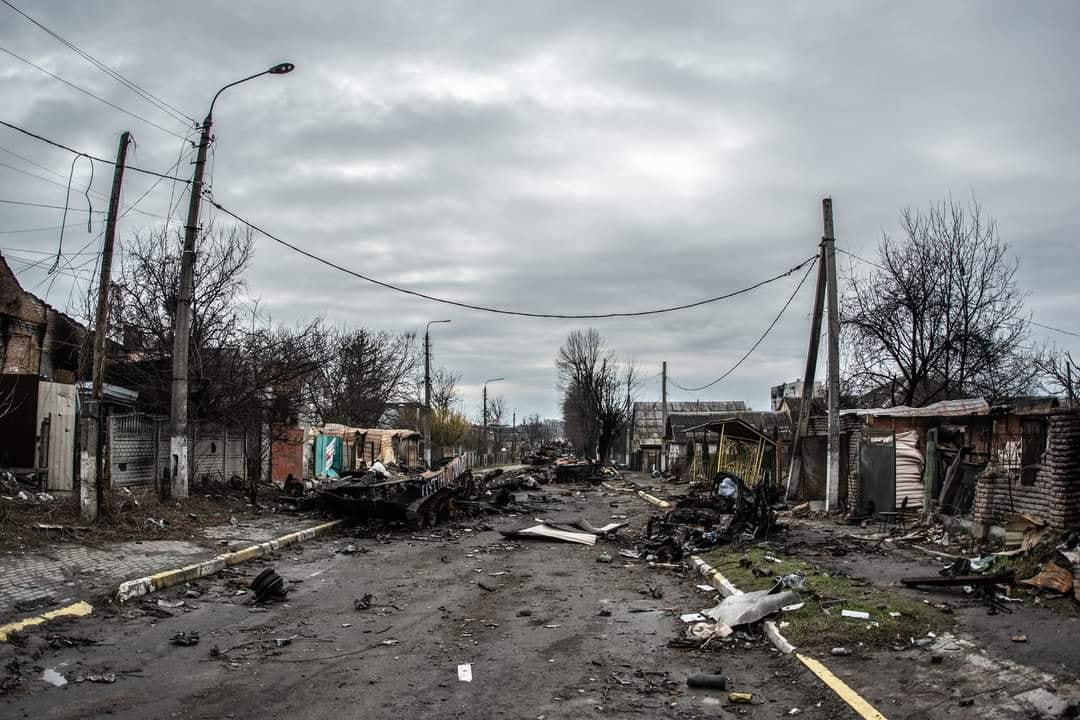John Grady

Denmark’s defense minister’s major take away from a recent meeting in Copenhagen, where 26 nations and the European Union pledged another $1.5 billion to Ukraine, was Russia must not win its war against its neighboring country.
Morten Bodskove called the latest financial commitment to Kyiv the third phase of Western support of Ukraine. The emphasis is on stepped up arms production, including artillery and ammunition, more training of Ukrainian forces in advanced systems and greater assistance in demining efforts in areas that Russian troops have departed.
“We are looking at a longer war” and changes need to be made to meet new challenges and sustain the Ukrainians, he said speaking at an Atlantic Council forum. Kyiv has lost about 20 percent of the nation’s land since 2014 when Russia annexed Crimea and backed separatists in the east.
He added that he saw no cracks in NATO’s and the European Union’s commitment to Ukraine as winter nears and Russia’s export of energy westward has largely been blocked.
“[Their] fight is our fight and we must be prepared to make sacrifices,” he said.
“Fundamentally, Ukraine belongs to the Ukrainian people.”
Bodskove said the first phase in military aid after the initial invasion by Russia was the spontaneous shipment of arms, equipment and funds to Kyiv. The second followed an April meeting at Ramstein Air Base, Germany, chaired by Defense Secretary Lloyd Austin, which prioritized how allies and partners could best assist Ukraine then.
The Russian president gravely miscalculated in believing Ukrainians would not resist a Kremlin invasion, Bodskove said. Putin also did not foresee the unity of the West in applying heavy sanctions on Moscow and shipping badly needed weapons to Kyiv hold back the onslaught. Nor did Putin expect a major restructuring of alliance forces closer to his borders and Sweden and Finland abandoning their neutral status.
He described Putin as a man longing for a new Russian empire where he considers Europe “a buffet to pick and choose” who to bully next.
As to Kyiv eventually joining NATO and the EU, Bodskove said the alliance has an open door policy and the union an open arms policy to new members.
Denmark is “geographically close to Russia in the Baltic and High North,” so he sees Copenhagen’s security focus moving in those directions. Bodskove was especially welcoming of NATO’s invitation to fellow Nordic countries Sweden and Finland to join the alliance and a new dimension to defenses in those two areas. He saw a new closer Nordic defense policy emerging when Stockholm and Helsinki are formally admitted to NATO.
“Denmark will be at the center of the Baltic” in regional and alliance defense planning, he said. Bodskove noted despite Denmark’s population of 5.87 million, it has dispatched 1,200 soldiers to Estonia and Latvia and F-16 fighters to bolster their defenses while maintaining its commitment to NATO’s mission in Iraq.
“We have been there” in the Cold War with its spheres of influence; “we must not go back” to a time of empire that should have ended with the fall of the Berlin Wall. Bodskove said Russia and China are making those kinds of moves and both pose “long-term systemic challenges to the way of life” of democracies.
“This is no time to be naïve when meeting with Putin,” he said.
In his upcoming meeting with Austin, he said “we are taking cooperation to a new level” with Denmark’s most important ally. “Ukraine will be at the top of the agenda,” he added.
No comments:
Post a Comment